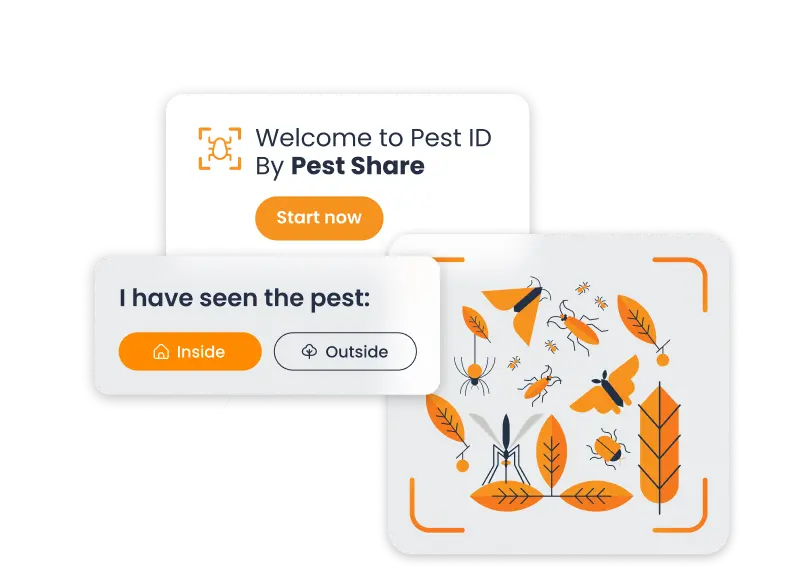In the realm of pest control, the use of natural and eco-friendly solutions is gaining significant traction, with cinnamon emerging as a particularly interesting option. This common spice, known for its distinctive aroma and flavour, is being explored for its potential impact on pests, especially rats. The shift towards humane and environmentally sustainable methods in pest control has led to increased interest in understanding how everyday substances like cinnamon can play a role. This guide delves into the effectiveness of cinnamon against rats, offering insights for property managers and homeowners looking to integrate natural remedies into their pest control strategies.
Understanding Rats: A Brief Overview
Rats are one of the most common pests encountered in both urban and rural settings. Known for their adaptability, intelligence, and survival skills, rats can pose significant challenges in pest control. They typically inhabit areas that provide easy access to food and shelter, such as sewers, basements, attics, and gardens. Rats are not just a nuisance; they can also cause property damage and pose health risks through the diseases they can carry.
Effective rat control is crucial for maintaining hygiene and safety in properties. Traditional methods of rat control have ranged from traps and poisons to more advanced electronic devices. However, these methods often raise concerns regarding safety, humaneness, and environmental impact, leading to a growing interest in natural alternatives like cinnamon.

Fast Fixes. Happy Residents.
Can Rats Eat Cinnamon: Exploring Dietary Responses
Investigating whether rats can eat cinnamon and how it affects them is central to understanding its potential as a pest control agent. Rats, being omnivores, have a diverse diet but are also known to be cautious with new food sources. Cinnamon, while non-toxic, has a strong aroma and flavour that might be unappealing to rats.
Research and anecdotal evidence suggest that rats tend to avoid cinnamon. The intense smell of cinnamon is believed to interfere with their sensory perception, making it difficult for them to navigate or locate food. This aversion can potentially be leveraged in pest control strategies, using cinnamon to deter rats from certain areas.
In terms of physical consumption, while rats can eat cinnamon without immediate harm, the spice’s strong essential oils and compounds like cinnamaldehyde can potentially cause discomfort or aversion in rats. This reaction is based on the natural defensive mechanisms of cinnamon, which, in nature, help protect the plant from pests and diseases.
Exploring rats’ dietary responses to cinnamon involves understanding their eating habits and sensory preferences. Rats have a keen sense of smell, which they rely on heavily for survival. Introducing a strong and unfamiliar scent like that of cinnamon can disrupt their normal behaviour and deter them from inhabiting treated areas.
Can Rats Have Cinnamon: Health Implications
While we’ve established that rats can physically consume cinnamon, it’s important to delve into the potential health implications for them. Cinnamon, in small amounts, is generally not harmful to rats. However, in larger quantities, it can be a different story. The key components of cinnamon, such as cinnamaldehyde, can act as irritants to rats. This can lead to discomfort, and in some cases, more severe reactions if consumed in significant quantities.
However, the question of how much cinnamon would constitute a harmful dose is complex. Rats are likely to avoid consuming large amounts of cinnamon due to its strong smell and taste, which they generally find unappealing. Therefore, the likelihood of cinnamon causing serious health issues in rats is relatively low under normal circumstances. Nonetheless, it’s important for property managers to consider the welfare of all creatures when implementing pest control measures.
Understanding the health implications of cinnamon on rats is crucial for using it responsibly in pest control. While aiming to deter pests, it’s equally important to ensure that the methods employed do not cause unnecessary harm or suffering to animals.
Cinnamon Rat: Using Cinnamon in Rat Control
The idea of using cinnamon for rat control is rooted in its strong, pungent smell, which is known to repel rats. The application of cinnamon in areas where rat activity is noticed can act as a natural deterrent. This can be done by sprinkling cinnamon powder or using cotton balls soaked in cinnamon oil in strategic locations such as entry points, near garbage bins, or in corners and crevices where rats are likely to traverse.
However, the effectiveness of cinnamon as a repellent is subject to certain limitations. Its impact is largely based on the scent, which can dissipate over time and thus requires regular reapplication to maintain its effectiveness. Moreover, cinnamon may not be effective in all situations, especially in cases of severe infestations where more aggressive control methods may be necessary.
In integrating cinnamon into a rat control plan, it’s important to balance its use with other methods. For instance, maintaining cleanliness and eliminating food sources is crucial in complementing the repellent effect of cinnamon. Sealing entry points and reducing clutter can also significantly contribute to the overall effectiveness of the pest control strategy.
What Does Cinnamon Do to Mice: Comparing Effects on Rats and Mice

While focusing on rats, it’s also pertinent to consider the impact of cinnamon on mice, as these rodents often coexist in the same environments. Like rats, mice are known to be deterred by strong smells, including that of cinnamon. The basic premise of using cinnamon as a deterrent applies to mice as well – its strong aroma interferes with their sense of smell, which is crucial for their survival and navigation.
The impact of cinnamon on mice parallels that on rats in many ways. Mice are also likely to avoid areas where cinnamon has been applied due to its overwhelming scent. However, the effectiveness can vary based on several factors, including the severity of the infestation, the species of mouse, and environmental conditions.
Understanding the role of cinnamon in an integrated pest management strategy is crucial. While it can serve as a natural and non-toxic method to deter both rats and mice, relying solely on cinnamon may not be sufficient for all pest control needs. Combining it with other methods, such as proper sanitation, habitat modification, and, if necessary, professional intervention, can lead to more comprehensive and effective pest management.
Incorporating Cinnamon into Pest Control Plans
For property managers looking to implement cinnamon into their pest control strategies, it’s important to do so thoughtfully and effectively. Start by identifying key areas where rats and mice are likely to enter or inhabit. These could include kitchen spaces, basements, storage rooms, and entryways. Applying cinnamon in these targeted areas can enhance its effectiveness.
The method of application is also crucial. Cinnamon sticks, powder, or essential oil can be used depending on the specific situation and area of application. For instance, cinnamon oil-soaked cotton balls can be strategically placed in small crevices and corners, while cinnamon sticks or powder might be more suitable for larger, open areas.
Regular monitoring and reapplication are essential, as the scent of cinnamon diminishes over time. This approach should be part of a broader pest management plan that includes cleanliness, food storage practices, and structural maintenance to prevent pest entry.
Pest Share: Enhancing Natural Pest Control Solutions
For property managers seeking expert assistance in integrating natural pest control solutions like cinnamon, Pest Share offers a valuable resource. Pest Share specialises in eco-friendly and humane pest management strategies, providing guidance and services tailored to each unique property and situation.
Partnering with Pest Share ensures not only the effective implementation of natural remedies like cinnamon but also access to a wide range of integrated pest management solutions. Their expertise can be particularly beneficial in designing a comprehensive approach that balances natural methods with other necessary interventions.
Conclusion
In summary, cinnamon can be a valuable addition to a natural pest control arsenal, offering a humane and environmentally friendly way to deter rats and mice. Its effectiveness, while dependent on various factors, can be maximised through strategic application and integration with broader pest management practices.
If you’re navigating the challenges of pest control and considering natural methods like cinnamon, remember that a balanced approach is key. And for those times when you need an extra hand, Pest Share is there to help guide you towards effective, sustainable pest management solutions. Embrace the cinnamon sensation and discover a more natural path to a pest-free property.





